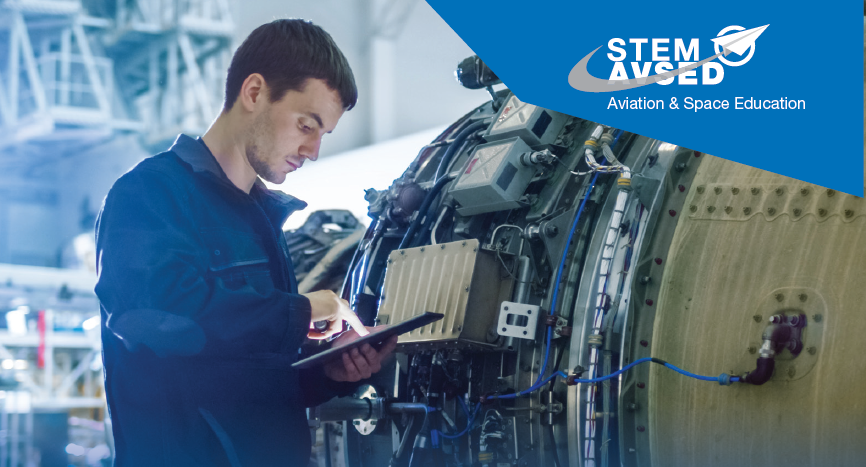How to Become an Aviation Maintenance or Avionics Technician

The Federal Aviation Administration has certification programs for aviation maintenance and avionics technicians.
Most aviation maintenance technicians obtain the necessary skills and experience at an FAA-Certified Aviation Maintenance Technician School.
Education and Training
- Aviation Maintenance Technician Schools award degrees in avionics, aviation technology, or aviation maintenance management.
- Coursework lasts 18 to 24 months and provides training with the tools and equipment used on the job.
- Aircraft trade schools are placing more emphasis on technologies being used in new airplanes, such as turbine engines, composite materials, and aviation electronics.
- These technological advancements require the technicians to have stronger skills in composite materials and electronic principles.
- Courses in mathematics, physics, chemical engineering, electronics, computer science, and mechanical drawing teach the principles involved in the design and structural properties of an aircraft.
- Courses that develop writing, communication, and management skills are important for students who wish to eventually move into management positions.
Qualifications
- Must be at least 18 years of age.
- Must be fluent in English.
- Must have 30 months of experience working on airframes and engines. Completion of a program at an FAA – Approved Aviation Maintenance Technician School can substitute for the experience requirement.
- Applicants must pass written, oral, and practical exams that demonstrate required skills.
- Candidates take the written test on a computer at one of the many designated testing facilities located within the United States. An FAA Designated Mechanic Examiner administers the oral and practical tests.
Avionics
The FAA allows certified airframe mechanics to work on avionics equipment. Although there is no avionic specific certification, avionic technicians must have the required training and tools. Many avionics technicians gain the necessary experience from military training, from a technical school, or by working for an avionics manufacturer.
As avionics systems continue to evolve, the skills needed for the technicians to work on these systems are also changing. A strong technical background in computer system hardware, software, databases, integration and networking will be essential in future avionics systems.
Important Qualities 
-
Physical Abilities: Prospective aviation maintenance technicians may be required to lift or pull heavy objects. They will often be required to stand, lie, or kneel in uncomfortable positions for extended periods of time, and are often required to work from ladders, platforms, or scaffolding.
-
Detail Oriented: Prospective aviation maintenance technicians will become familiar with the specialized tooling and equipment used in the evaluation of various aircraft components while looking for signs of wear or deterioration. They should always be mindful of potentially unsafe conditions when working around aircraft.
-
Individual Attributes: Prospective aviation maintenance technicians should have a strong work ethic. They should demonstrate self-motivation and be able to perform in a professional and thorough manner. They should be attentive to details.
-
Technical Skills: Prospective aviation maintenance technicians should demonstrate a high degree of mechanical aptitude; they should be able to grasp operational concepts of aircraft systems and components.
-
Troubleshooting Skills: Prospective aviation maintenance technicians should possess the aptitude and ability to detect, diagnose, and solve complicated mechanical problems.
This is an exciting age in the aviation industry. It’s the perfect time for an inside look at the unlimited career opportunities available in the field of aviation maintenance.
Your Career is Ready for Take Off!
For more information about the path to aviation maintenance, contact your local aviation space & education program manager at www.faa.gov/education.
